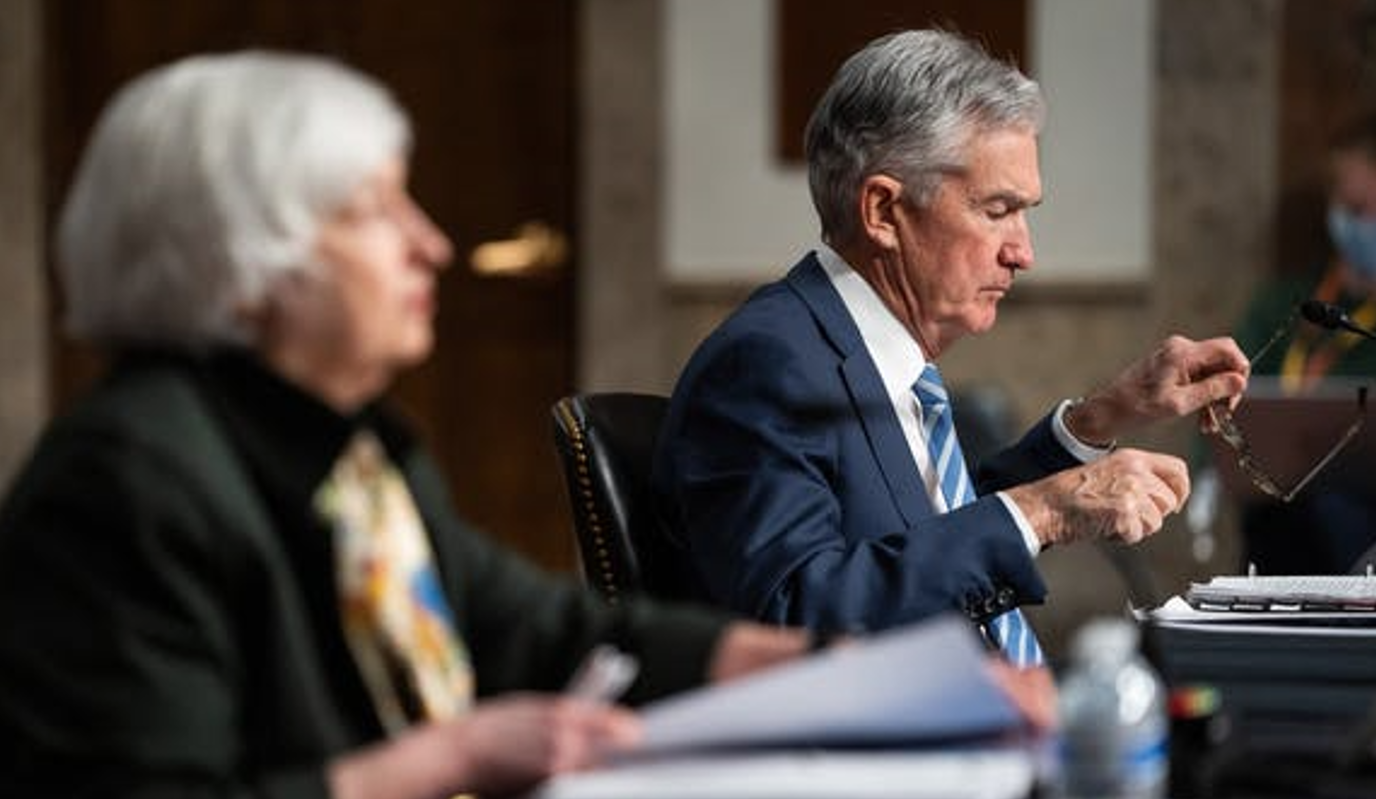Thu Dec 16, 2021
Thursday / December 16
Fed decisions
Federal Reserve officials decided at their monetary policy meeting Wednesday that they would end their asset purchase programs early in the new year rather than mid-2022 as originally planned.
The central bank said it would double the pace of withdrawing support by cutting its purchases of Treasury bills and mortgage-backed securities by $30 billion a month.
"The economy no longer needs increasing amounts of policy support," Fed Chairman Jerome Powell said at a press conference after the decision. FOMC members also signaled that they prefer to raise interest rates faster than expected in 2022.
The moves, which were unanimously approved by the Federal Open Market Committee, are a significant change in the loosest policy in its 108-year history. In the statement made after the meeting, attention was drawn to the effect of inflation.
"Supply and demand imbalances related to the pandemic and the reopening of the economy have continued to contribute to elevated levels of inflation,” the statement said.
The Committee sharply raised the inflation outlook for 2021, from 4.2% to 5.3% for all items, and from 3.7% to 4.4%, excluding food and energy. Members' headline inflation forecast for 2022 was 2.6%, and core inflation expectations were at 2.7%.
The FOMC estimate for the unemployment rate for 2021 fell to 4.3% from 4.8% in September.
However, members lean heavily on rate hikes, voicing a hawkish view of policy moves.
The summary "dot plot" of individual members' expectations showed that only six of the 18 FOMC members saw fewer than three rate hikes in the next year, and no member expected rates to stay as close to zero as they are now.
US defense budget
The US Senate overwhelmingly passed a $770 billion National Defense Authorization Act (NDAA) on Wednesday.
Congress sent the measure, $25 billion more than the figure requested by President Joe Biden, to the White House for the president's signature.
It passed 88–11, with both Democrats and Republicans strong support for the annual legislation-setting policy for the Department of Defense. The bill was passed in the House of Representatives with a vote of 363–70 last week.
The NDAA includes $300 million for the Ukraine Security Assistance Initiative, $4 billion for the European Defense Initiative, and $150 million for Baltic security cooperation, which provides support to the Ukrainian armed forces.
Regarding China, the bill includes $7.1 billion for the Pacific Deterrence Initiative and congressional support for Taiwan's defense, as well as a ban on the Department of Defense from supplying forced labor products from China's Xinjiang region.
Xi-Putin summit
Presidents Vladimir Putin and Xi Jinping, who control two of the world's other great powers, agreed in a video call Wednesday that Russia and China must be determined to reject Western interference and defend each other's security interests.
The call comes eight days after Putin's similar video meeting with US President Joe Biden.
"At the moment, some international powers are interfering in the internal affairs of China and Russia under the guise of 'democracy' and 'human rights' and brutally violating international law and accepted norms of international relations," China's state agency Xinhua reported, citing President Xi. "China and Russia should step up their joint efforts to more effectively protect the security interests of both sides."
The United States and its non-Muslim accuse China of imprisoning at least one million Uighurs and other Muslim-majority ethnic groups in communist brainwashing camps, dispersing their families, demolishing mosques, forcible abortions of pregnant women, and forced labor.
The CCP argues that its actions in the nominally autonomous Xinjiang region are to combat religious extremism and separatism.
The Kremlin said in a statement that Xi offered Russia support to Putin in his effort to obtain binding security guarantees from the West, and that he understood Moscow's concerns.
Putin wants assurances from the west that NATO will not expand further east, including in Ukraine, which is threatened by Russian military invasion.
According to the Kremlin, the duo also expressed "negative views" on the AUKUS partnership between Australia, the United Kingdom and the United States, and the creation of new military alliances such as the Indo-Pacific "Quad" of Australia, India, Japan and the United States.
US stocks
U.S. stocks trimmed their losses, rising on Wednesday as the market overcame one of the major uncertainties about economic support by the Fed's decision towards the end of the year.
The S&P500 rose 1.63% to 4,709.85, while the tech-heavy Nasdaq Composite rose 2.15% to 15,565.58.
The Dow Jones Industrial Average closed at 35,927.43, up 383.25 points, or 1.08%.
All three indices were in negative territory prior to the central bank's decision.
